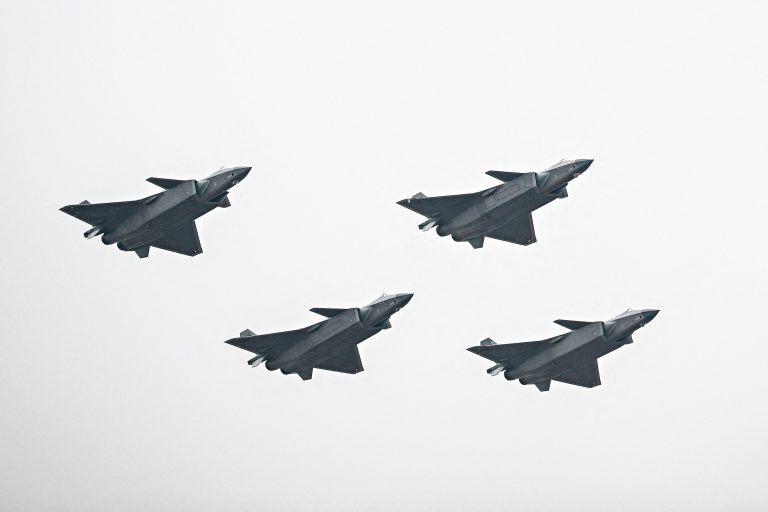By Dr. Chen Po-chih
The recent surge in low-priced exports of electric vehicles (EVs) from China has raised concerns within the European Union, prompting an anti-dumping investigation. Tesla’s Elon Musk, whose firm has encountered growing challenges in its China business, advocates trade barriers as a countermeasure to Beijing’s policies.
In response to foreign accusations of unfair competition against Chinese products, People’s Republic of China (PRC) leader Xi Jinping appears to simplify the issue, stating that other countries should not make an adversary of China on account of their systemic differences. However, the differences in systems do indeed lead to unfair competition and undermine the spirit of international free trade, including the goal of increasing economic efficiency.
Therefore, when importing goods from countries with different systems, adjustments such as tariffs or other methods should be made. Such policies should not be misconstrued as hostility towards the PRC’s economic system.
This article will first explain the basic principles and requirements by which international free trade can improve global efficiency and enhance the welfare of all nations. It will take the phenomena of carbon and corporate taxes as examples to demonstrate why unfair policies or systems should be stopped or offset. It then points out how the systematic differences between Communist China and other countries can lead to unfair competition, including some practices that directly cause such competition.
Success
You are now signed up for our newsletter
Success
Check your email to complete sign up
On this basis, the article concludes by explaining the rationale for countries around the world to investigate and counteract unfair policies, while pointing out the fallacies promoted by those who ignore unfair competition in the EV industry and blindly defend the PRC while blaming other nations for taking reasonable protective measures.
The pitfalls of unfair trade
International free trade is not considered an innate, fundamental freedom or right like freedom of speech or religion. It is merely an economic principle that, under certain assumptions, can be beneficial for all parties involved. If reality does not align with these assumptions, free trade may not be advantageous for everyone, nor is it an inalienable right.
Trade theory posits that if all nations adopt systems of free and fair competition and the beneficiaries of international free trade compensate those who are adversely affected, then it can enhance the welfare of all countries and individuals. This has been the theoretical foundation for the United States and many free-market countries to promote international free trade. The World Trade Organization (WTO) has explicit regulations to penalize or offset unfair practices such as dumping and government subsidies. However, there is still a lack of effective regulation for unfair competition caused by different systems.
Case 1: Tariffs on carbon emissions
Unfair competition caused by systemic differences is easily understood through the example of tariffs on carbon emissions. The release of carbon dioxide and certain gasses contributes to global warming, a worldwide environmental issue. Economically, nations should tax such emissions to optimize global efficiency. However, current tax rates vary by country, with some not imposing any tax at all. Consequently, countries with lower carbon taxes have lower costs for high-emission products, allowing them to capture a greater share of the market — an unfair advantage born of systematic disparities.
Low carbon taxes also enable less environmentally efficient manufacturers to continue production due to the tax advantage. Even under the assumption of equal technology, countries with lower tax rates are likely to adopt production methods that emit more carbon per unit. As a result, countries exploiting low carbon taxes to unfairly increase production also contribute to higher global carbon emissions, leading to inefficiency.
In response, the European Union has established the “Carbon Border Adjustment Mechanism” (CBAM), imposing appropriate taxes on products from countries without reasonable carbon taxation upon import into the EU to mitigate unfair competition. Other developed nations may follow suit with similar adjustments.
Case 2: Disparities in corporate taxation
Taxes levied on corporate profit is another significant aspect of unfair competition caused by systemic differences. Many countries use low tax rates to attract foreign enterprises for investment. Some nations, despite not being the most suitable locations for producing certain products from an international comparative advantage perspective, can still make their products internationally competitive due to low tax rates, even drawing in foreign manufacturers. The European Union and some countries are now preparing to impose taxes on these disparities in corporate tax rates to achieve fairness.
If a country’s overall system exhibits significant disparities from the international norm, it will almost certainly result in more unfair competition. When non-free market economies join international trade and trade organizations, it is easy for observers to overlook the distortions caused by systemic disparities.
In the case of China, it was often erroneously assumed that the country would with time transition to a free market system — instead, the opposite occurred. Because of such oversights and assumptions, there was and continues to be a dearth of detailed discussions and comprehensive strategies to address unfair international competition.
Unfair competition caused by PRC government subsidies
A critical instance of unfair policy is ‘government subsidies for industries.’
When products receive government subsidies, they can compete internationally at prices below their actual cost, capturing market share. Products can receive a boost without direct government aid. For example, if the government provides cheap land and funds to manufacturers, they essentially receive a subsidy equal to the difference between market prices and lower land values and interest rates.
More directly, if manufacturers receive substantial capital investment at no cost or can continue operating despite significant losses due to government support, they can undercut the market by pricing their products below reasonable costs.
China and other non-market economies use state subsidies to compete unfairly. Under these systems, though the overall efficiency may suffer, many enterprises are state-owned and can act in unison. Adding to this the effects of different accounting and ownership systems, tax regimes, lack of transparency, and restrictions on speech and other freedoms, it becomes difficult for other countries to investigate and assess the specific nature or details of the unfair competition.
In non-market systems, the state or conglomerates often enjoy more political and judicial backing than in countries with robust democratic processes or government transparency, enabling these regimes to shield infringements on technology and other intellectual properties, coerce foreign entities to hand over technology or invest and license on their political and economic terms. All these factors endow certain products from non-free-market economies with significant unfair competitive abilities, making it challenging for individual manufacturers and foreign governments to counter these unfair forces.
Free-market nations are justified in rejecting unfair competition
As stated at the outset, the theoretical foundation of the international free trade system is the overall efficiency brought about by free competition. Free trade is not an inherent right enjoyed by all nations of the world, but an order that must be adhered to to function properly. Only countries that abide by the rules of fair competition are qualified to participate in international cooperation like free trade. Those unwilling to comply may choose not to participate.
If some states and firms flout the rules and seek to capture production sectors that should be undertaken by others through unfair means, it is not only unfair to other countries, but also diminishes global efficiency. Tolerating such practices harms the collective interest. Hence, it is justifiable and desirable for free market economies to reject products resulting from unfair competition and to adopt measures like the EU’s CBAM policy against products from countries with disparate systems to maintain fairness and efficiency.
Countries with different systems could try to prove that their systemic differences do not lead to unfair competition, but this is unlikely to be feasible. They could also change the systems that result in unfair outcomes or refrain from exporting the relevant products. A more immediate and fair approach is for importing countries to levy import taxes based on the cost differences caused by the systems, similar to the EU’s CBAM. Taxed countries should understand that such adjustment taxes exist to reduce unfair competition, not to treat them as enemies or adversaries. The additional tariffs imposed by the United States on certain Chinese products can also be determined based on this principle. To more accurately gauge the extent of unfair competition and prevent the tarriffed countries from using retaliatory measures to individually target nations seeking fair competition, free market economies would do well to act in concert.
The “phase one” trade deal signed in early 2020 between the United States and China during President Trump’s administration already significantly reflects the aim of improving fairness in international trade, with various clauses in the deal directly calling for China to implement economic reforms.
With the EU set to investigate whether China’s EV producers have received improper subsidies and dumping, the discussion should focus on the existence and actual scale of such improper subsidies.
Dr. Chen Po-Chih is the former chairman of the Council for Economic Planning and Development, a national policy advisor to the Office of the President of the Republic of China (Taiwan), and the head of the Department of Economics and the director of the Institute of Economics at National Taiwan University. He currently serves as the honorary chairman of the Taiwan Thinktank and is an expert in Taiwan’s economic development and international finance.
Text has been edited for clarity and concision.













